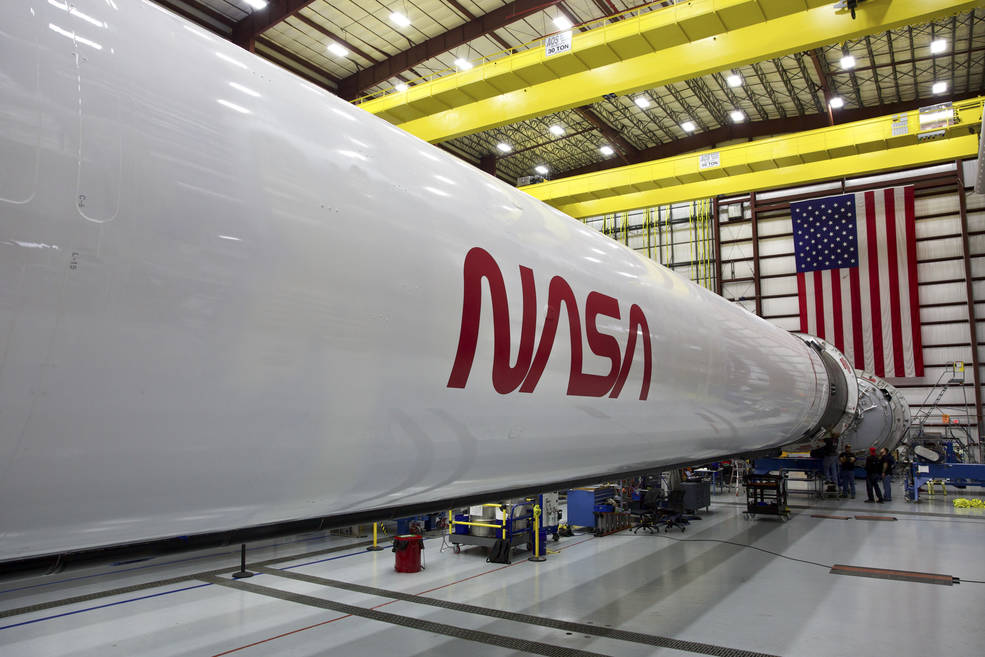Nicky Case has a great comic explaining of how we can use apps to automatically do contact tracing for Covid-19 infections while protecting people’s privacy.

Nicky Case has a great comic explaining of how we can use apps to automatically do contact tracing for Covid-19 infections while protecting people’s privacy.

Alec Levenson for the MIT Sloan Management has a bleak pessimistic view on an eventual economic recovery from the Corona virus pandemic.
It takes time for business and society to settle into a new normal following a large-scale economic disruption. Even if the health care challenges from COVID-19 are solved before the end of this year, which seems highly unlikely, businesses will face many more months, and likely years, beyond the anticipated adjustment periods budgeted in their scenario planning and operations.
The shifts in consumer demand will require expansion in some industries and contraction in others. Future growth in consumer spending is likely to be slower than it has been for many years. Increased government regulation of gig and other nonregular work will require adaptation and changes in work practices. The disruptions in face-to-face work will be a drag on economic efficiency, leading to slower growth in revenues, lower profit margins, and reduced cash flow. And reconfiguring business models for greater resiliency will require significant investments of working capital into operations in ways that will not show any ROI until the next pandemic hits.
We will get to the new normal eventually. The corporate leaders who recognize these new challenges now and move quickly to adapt to them will put their companies in the best position to thrive throughout the 2020s.
I’ll take a much more optimistic view. This will force issues such as the need for universal healthcare, workers rights, and corporate regulations to be strengthened and enacted.
While this will take the better part of the decade, we will recover from this.
 Sydney Ember in the New York Times writes:
Sydney Ember in the New York Times writes:
Mr. Sanders, 78, leaves the campaign having almost single-handedly moved the Democratic Party to the left. He inspired the modern progressive movement with his expansive policy agenda and his impassioned message that “health care is a human right,” and electrified a legion of loyal supporters who wholeheartedly embraced his promise to lift up those who need it most. He also transformed the way Democratic campaigns raised money, eschewing big fund-raisers and instead relying on an army of small-dollar donors.
Americans know that he is the son and grandson of immigrants, an old-school, Great Society, FDR Democrat who puts workers 1st.
 Ivan Penn in the New York Times writes:
Ivan Penn in the New York Times writes:
A few years ago, the kind of double-digit drop in oil and gas prices the world is experiencing now because of the coronavirus pandemic might have increased the use of fossil fuels and hurt renewable energy sources like wind and solar farms.
That is not happening.
In fact, renewable energy sources are set to account for nearly 21 percent of the electricity the United States uses for the first time this year, up from about 18 percent last year and 10 percent in 2010, according to one forecast published last week. And while work on some solar and wind projects has been delayed by the outbreak, industry executives and analysts expect the renewable business to continue growing in 2020 and next year even as oil, gas and coal companies struggle financially or seek bankruptcy protection.
While oil and coal will be around for some time to come, they will continue to be a shrinking industry. The switch to clean energy bring be more jobs, cleaner environment, less medical issues, and energy independence. This is even more reason for the US to support clean energy initiatives.

Can the Covid-19 epidemic upturn the global power structure going forward? Michel Duclos at Institut Montaigne makes a good case that it just might:
“Great Power competition” – dominated practically by the rivalry between the United States and China, as well as Russia – has become the dominant factor. International institutions have entered a phase of weakening, due partly to an American withdrawal, and partly to discord among major powers. It follows that the WHO is not playing the central role it should in the Covid-19 crisis. It was informed too late by China, to the detriment of other states' ability to react, and having to comply with Chinese injunctions before declaring a state of pandemic. WHO gives the sense that it is echoing a “Chinese line” on the fight against the virus. China, by the way, is reaping the benefits of the investment it has put in the UN system in recent years. This brings us to our second starting point: the increased space taken by China and Asia in world affairs.
It had been commonplace for years to observe the rise of China and Asia. Covid-19 provides a somewhat negative illustration of this, but one that is immediately clear. Beijing’s initial policy of opacity, as noted above, contributed greatly to the spread of the pandemic. But the most striking element is elsewhere. On the one hand, because of value chains’ structure today, the shutdown of a large part of the Chinese economy has had, and continues to have, major effects on the world economy; unlike 2008, today’s financial crisis is second only to a crisis of supply and demand in the real economy. On the other hand, the “Great Power competition” not only puts international solidarity on the back burner, but above all translates into an astonishing “soft power”competition between China and its main rivals.
From this point of view, we have witnessed an unprecedented demonstration. The People’s Republic of China was in difficulty at the beginning of the crisis, due to its initial attitude of repression of Wuhan’s whistle-blowers; forced closures of its factories; and then appearing to overcome the epidemic thanks to authoritarian quarantine measures, combined with an unprecedented use of artificial intelligence. Finally, China emerged from the ordeal while Europeans, now the main area of infection, were slow to implement drastic measures, while the Trump administration demonstrated its messy incompetence. China today is reviving its economy at a time when stock markets are collapsing in the West. It is fighting against the misplaced xenophobic insinuations of Donald Trump in an absurd battle of disinformation, and above all, it is acting as a lifeline for Italy or Serbia, partly because of the clumsiness of their European partners. In the emerging world, China is certainly appearing as the power that can assist internationally, which was once the United States’ go-to role.
China perhaps has an interest in not pushing this propaganda war too far, as it is not immune to a Covid-19 rebound, or other twists and turns. However, for now at least, the debate between authoritarianism, populism and liberalism is being revived in our democracies. It is too early to know how this debate will turn out. For some, the scale of the crisis can lead to a rehabilitation of expertise, institutions and international cooperation, and devalues the populists' more cookie-cutter approach. Others, on the other hand, inspired by sovereigntist ideas, argue that the European institutions have proved to be irrelevant and had to support and pursue measures to re-establish border controls.
The kind of undeclared Cold War that had been brewing for some time shows its true face under the harsh light of Covid-19.
What we would like to especially note at this point is the conjunction that is taking place before our eyes between geopolitical competition and competing political models, along the lines of lessons that emerged from Institut Montaigne’s study on “neo-authoritarians”. The “Chinese model” emerges in this case as a reference for the global anti-liberal current, while China shamelessly tries to capitalize on the country’s “victory against the virus” to promote its political system. The kind of undeclared Cold War that had been brewing for some time shows its true face under the harsh light of Covid-19.
Stuart Stevens, author of “It Was All a Lie: How the Republican Party Became Donald Trump,” is a well known and highly successful Republican strategist admits that the party is deeply flawed and his role in it. The first step to fixing a problem is to admit there is one. Let us hope more Republican have a similar about face.
Don’t just blame President Trump. Blame me — and all the other Republicans who aided and abetted and, yes, benefited from protecting a political party that has become dangerous to America. Some of us knew better.
But we built this moment. And then we looked the other way.
Many of us heard a warning sound we chose to ignore, like that rattle in your car you hear but figure will go away. Now we’re broken down, with plenty of time to think about what should have been done.
The failures of the government’s response to the coronavirus crisis can be traced directly to some of the toxic fantasies now dear to the Republican Party. Here are a few: Government is bad. Establishment experts are overrated or just plain wrong. Science is suspect. And we can go it alone, the world be damned.
All of these are wrong, of course. But we didn’t get here overnight. It took practice.
And here is an excellent interview by Michel Martin at Amanpour & Co. :
 We have all seen the above image of this silent enemy by now. Here is how Alissa Eckert describes her illustration of the novel Coronavirus:
We have all seen the above image of this silent enemy by now. Here is how Alissa Eckert describes her illustration of the novel Coronavirus:
But for the coronavirus illustration, they went with what professional medical artists call a “beauty shot”: a detailed, solo close-up.
“We just call attention to the one virus,” she said.
The novel coronavirus, like all viruses, is covered with proteins that give it its character and traits. There are the spike proteins, or S-proteins — the red clusters in the image — which allow the virus to attach to human cells. Envelope or E-proteins, represented by yellow crumbs, help it get into those cells. And membrane proteins, or M-proteins, shown in orange, give the virus its form.
When asked if Fox coverage will cause people to die, Ashish Jha:
Yes. Some commentators in the right-wing media spread a very specific type of misinformation that I think has been very harmful
The Fox organization is concerned about being sued - good. And I hope they they do. While they are at it, lock up all the anchors too.
As of today (April 4th, 2020) - our current situation:
The United States of America is now a third world country. Or as our President likes to say - a Shit Hole Country.
Thanks Donald Trump. And thank you Republicans. History will not remember you kindly. But it is us - the American people who are ultimately responsible. We put these people in power.
A people that elect corrupt politicians, imposters, thieves and traitors are not victims, but accomplices.

In the recommendation published online Friday, the CDC said that because the virus can “spread between people interacting in close proximity,” they would recommend “wearing cloth face coverings in public settings where other social distancing measures are difficult to maintain (e.g., grocery stores and pharmacies) especially in areas of significant community-based transmission.”
Here are detailed instructions for do-it-yourself masks made from whatever materials you have available.
Stay at home, wash your hands, use hand sanitizer, keep your distance from others when out, and, when out, wear a face mask.

I am so glad they went back to the original logo!
Enter a cleaner, sleeker design born of the Federal Design Improvement Program and officially introduced in 1975. It featured a simple, red unique type style of the word NASA. The world knew it as “the worm.” Created by the firm of Danne & Blackburn, the logo was honored in 1984 by President Reagan for its simplistic, yet innovative design.
NASA was able to thrive with multiple graphic designs. There was a place for both the meatball and the worm. However, in 1992, the 1970s brand was retired - except on clothing and other souvenir items - in favor of the original late 1950s graphic.
Until today.
Samuel L. Jackson recites a short story/poem by Adam Mansbach (author of Go the Fuck to Sleep) to Jimmy Kimmel called Stay the Fuck at Home (starts at 6:00).

In an opinion piece in The New Yorker:
The argument for resuming a viable social-welfare state is about not only attending to the immediate needs of tens of millions of people but also reëstablishing social connectivity, collective responsibility, and a sense of common purpose, if not common wealth. In an unrelenting and unemotional way, covid-19 is demonstrating the vastness of our human connection and mutuality. Our collectivity must be borne out in public policies that repair the friable welfare infrastructure that threatens to collapse beneath our social weight. A society that allows hundreds of thousands of home health-care workers to labor without health insurance, that keeps school buildings open so that black and brown children can eat and be sheltered, that allows millionaires to stow their wealth in empty apartments while homeless families navigate the streets, that threatens eviction and loan defaults while hundreds of millions are mandated to stay inside to suppress the virus, is bewildering in its incoherence and inhumanity.
Naomi Klein has written about how the political class has used social catastrophes to create policies that allow for private plunder. She calls it “disaster capitalism,” or the “shock doctrine.” But she has also written that, in each of these moments, there are also opportunities for ordinary people to transform their conditions in ways that benefit humanity. The class-driven hierarchy of our society will encourage the spread of this virus unless dramatic and previously unthinkable solutions are immediately put on the table. As Sanders has counselled, we must think in unprecedented ways. This includes universal health care, an indefinite moratorium on evictions and foreclosures, the cancellation of student-loan debt, a universal basic income, and the reversal of all cuts to food stamps. These are the basic measures that can staunch the immediate crisis of deprivation—of millions of layoffs and millions more to come.
The Sanders campaign was an entry point to this discussion. It has shown public appetite, even desire, for vast spending and new programs. These desires did not translate into votes because they seemed like a risky endeavor when the consequence was four more years of Trump. But the mushrooming crisis of covid-19 is changing the calculus. As federal officials announce new trillion-dollar aid packages daily, we can never go back to banal discussions of “How will we pay for it?” How can we not? Now is a moment to remake our society anew.
Millions are getting kicked of their company sponsored health care. And Biden, doesn’t care.
Jennifer Baer has created some travel posters for the world wide pandemic. They are available for purchase here. Here are is my favorite:

When racism meets industrial scale arts and craft. Samantha Bee’s Full Frontal exposes ridiculous the border wall is. It is amazing that this is happening in America.
I would pay to see Donald Trump vs Nayda Alvarez !
When Pence was asked by Fox no less, about how we are going to cover Americans without healthcare - Pence:
So I was at Walmart this afternoon in South Carolina ….
The pandemic has shown not only the fragile state of the economy, but how flawed our health care system is.
With the Covid-19 pandemic expected to cause 20+ million being unemployed - adding to the already 40+ million people without health insurance, now is the time for a single payer health care initiative if ever there was one.
If they are serious, here is how you would answer that question:
For now, the next stimulus bill will cover all Corona Virus related medical costs. Americans will not have to worry. Once we get past this pandemic - and we will - I will be meeting with both sides of the isle so that we can provide every American guaranteed access to the health care they need
But instead we get a long winded answer, that talks about how Walmart is stepping up to the plate. Trump isn’t going to do anything. Biden won’t either. We need Bernie and his Revolution.
From Drew Stewart over at Wired:
For the past 20-plus years, we’ve been allowing the Saga Editions to stand in for the originals in box sets and in retrospective videos. An entire generation is growing up under the mistaken impression that these are the movies their parents fell in love with. We can’t stand for this anymore. The Saga Editions could exist in their own corner, but there is no reason that the original pieces of film history should be locked in a vault somewhere.
The problem I’ve been seeing recently is an “I got mine” attitude. Disney doesn’t seem to mind the fan restorations, and the more people go around saying “Well, I guess it’s not coming—doesn’t matter to me because I’ve got [Despecialized/4K77/VHS],” the less likely it becomes that Disney will bother to release the original versions. I’m not saying we can’t have and enjoy the fan preservations, I’m saying we can’t pretend they would be anything compared to a professional restoration of backups we know they have just sitting in an archive. We have to make the demand.
Even J.J. Abrams recently said in an interview that “it would be great to have [the originals] available for a mainstream audience.” But when he asked about it, he was told such a release was not necessarily possible “for reasons I don’t quite understand.” So when he watches the originals, he has to watch Despecialized. The man directed two Star Wars movies probably has to pirate the same versions fans do. That’s insane.
The simple fact is that the originals are historical artifacts that can stand on their own, separate from the franchise they birthed. For all the reasons detailed here, fans should be able to watch the versions that hit theaters some four decades ago. Moreover, Disney paid $4 billion for this franchise, it should want fans to want to watch them. The demand is there; the company could likely bring a lot of converts to Disney+ if they just met it.
This isn’t a call for a boycott, nor is it a call for a Disney/Lucasfilm pile-on. Instead, it’s a call for one thing, and one thing only: #ReleaseTheOriginalTrilogy.

Paul Krugman, in an opinion piece in New York Times, has the best explanation on conservative’s virus denial:
But I suspect that the disastrous response to Covid-19 has been shaped less by direct self-interest than by two indirect ways in which pandemic policy gets linked to the general prevalence of zombie ideas in right-wing thought.
First, when you have a political movement almost entirely built around assertions that any expert can tell you are false, you have to cultivate an attitude of disdain toward expertise, one that spills over into everything. Once you dismiss people who look at evidence on the effects of tax cuts and the effects of greenhouse gas emissions, you’re already primed to dismiss people who look at evidence on disease transmission. This also helps explain the centrality of science-hating religious conservatives to modern conservatism, which has played an important role in Trump’s failure to respond.
Second, conservatives do hold one true belief: namely, that there is a kind of halo effect around successful government policies. If public intervention can be effective in one area, they fear — probably rightly — that voters might look more favorably on government intervention in other areas. In principle, public health measures to limit the spread of coronavirus needn’t have much implication for the future of social programs like Medicaid. In practice, the first tends to increase support for the second.
This video has a great example of why social distancing is so crucial in our fight against COVID-19. Using anonymized cell phone geo-location from people who recklessly gathered on a single beach in Fort Lauderdale, Florida, this video shows just how far those people spread across the country when they went home, possibly taking COVID-19 with them. They ended up all over the country.